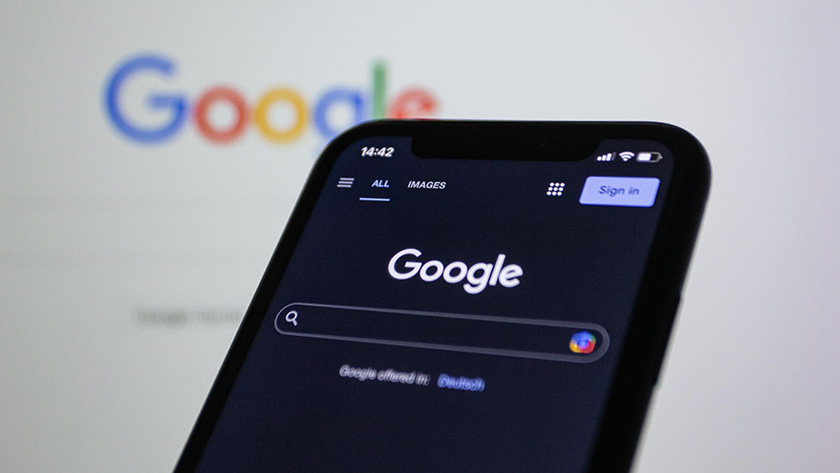Choosing the right Google Ads strategy is essential for maximizing ROI and achieving your business goals. Among the most popular campaign types are Performance Max and Search campaigns. Both offer unique advantages, but understanding their core differences is crucial to determine which fits your needs best.
In this guide, we’ll break down performance max vs search campaign, helping you navigate targeting, reach, campaign structure, and optimization best practices.
What Are Performance Max and Search Campaigns in Google Ads?
Google Search Campaigns: Keyword-Based Precision
Search campaigns are the most traditional and straightforward form of Google Ads. You choose keywords that your potential customers might search for, and your text ads appear on Google’s Search Network when those queries are made.
- Control: You decide which keywords to bid on and write your ad copy.
- Intent: It targets users with high intent who are actively searching for something specific.
- Structure: Simple to segment into different ad groups based on products, services, etc.
This makes Search campaigns ideal for advertisers with a clear understanding of their target audience and those seeking high-precision traffic.
With the introduction of Google’s AI Max features for Search campaigns, advertisers now also have the option to enhance their campaigns with AI-powered optimizations, such as dynamic asset creation, keywordless targeting, and automated URL selection, while maintaining control and visibility.
This new setting allows companies to scale their traditional Search campaigns without fully transitioning to Performance Max, offering a balanced approach to automation and control.
At Optimanova, we implement highly segmented Search campaigns for our clients, where control over keyword intent and cost-per-click is critical for ROI.

Performance Max Campaigns: AI-Powered Reach Across All Channels
Performance Max is a newer campaign type designed to simplify advertising by using Google’s machine learning to deliver ads across all Google channels: Search, Display, YouTube, Gmail, Maps, and Discover.
- Automation: Google decides where and when your ads appear, based on your conversion goals and provided assets.
- Assets Over Keywords: Instead of targeting specific keywords, you provide headlines, images, videos, and audience signals.
- Reach: It casts a much wider net, great for increasing brand visibility and discovering new audiences.
Performance Max vs Search Campaign: A Deep Dive Into the Key Differences
Understanding the nuances between Performance Max vs Search campaign can help guide your strategy:
| Feature | Search Campaign | PMax Campaign |
|---|---|---|
| Targeting | Manual keyword selection | Automated audience signals + intent data |
| Network Reach | Google Search Network and Search Partners | All Google properties (Search, Display, YouTube, etc.) |
| Ad formats | Text ads only | Rich media: headlines, images, videos |
| Campaign Management | Full control over structure | Hands-off, AI-driven management |
| Performance Visibility | Granular keyword and ad group data | Aggregated reporting by asset group and limited search term visibility |
| Budget Suitability | More effective with limited budgets | Best performance with medium to high budgets |
Budget Considerations: Why Performance Max Needs Room to Breathe
One key difference that often gets overlooked is budget efficiency.
If your advertising budget is limited, starting with a Search campaign is usually the smarter move. Search campaigns let you focus on your highest-converting keywords and control your spending tightly.
On the other hand, PMax campaigns perform best when they have enough budget to explore different channels and optimize placements. Since Google’s AI needs time (and data) to learn which combinations work best, constrained budgets can limit its ability to scale effectively.
Another challenge is low conversion volume. When conversions are too scarce, Performance Max has limited signals to learn from, which can severely hinder optimization and lead to inefficient performance.
We often advise our clients to initiate Performance Max campaigns only when a sufficient testing and learning budget is available, ensuring Google’s automation has room to optimize effectively.
Rule of thumb:
- Small budget? Go with Search.
- Larger budget with broad goals? Try Performance Max.

When to Choose a Search Campaign
Search campaigns are ideal when:
- You’re targeting very specific or high-value keywords.
- You need full control over bidding, budget, and ad copies.
- Your product or service has low visual appeal or is difficult to represent in an image or video format.
- Your marketing goals include lead generation from local or niche markets.
They’re also great for testing messaging and identifying the highest-performing queries before scaling with broader campaigns.
When to Choose Performance Max Campaigns
Performance Max shines when:
- You want to promote products across multiple Google platforms.
- You have access to a variety of creative assets (videos, images, copies).
- You’re looking for a scalable, goal-based solution that automates much of the management.
- You’re focused on e-commerce, store visits, or online bookings at scale.
Importantly, you need to set clear conversion goals and provide high-quality audience signals (like past website visitors, custom segments, or first-party data) to guide Google’s AI effectively.
However, advertisers should also be mindful of brand safety and campaign overlap. Since PMax shows ads across all of Google’s networks, including YouTube and the Display Network, there is less control over where ads appear, which can lead to your brand being shown alongside inappropriate or low-quality content. Additionally, this campaign type may automatically bid on your own branded terms, potentially cannibalizing traffic from organic results or branded Search campaigns.
To mitigate this, we recommend implementing the brand exclusion setting within Performance Max to maintain cleaner campaign segmentation and protect your brand strategy.
Best Practices to Maximize Results
Search Campaigns’ best practices
- Group keywords into tightly themed ad groups for better ad relevance.
- Use negative keywords to avoid wasted spend.
- Monitor search terms reports regularly and refine based on performance.
- A/B test headlines and descriptions to improve Quality Score.
Performance Max Campaigns’ best practices
- Upload a variety of asset types to improve reach and engagement.
- Define clear conversion goals and track with enhanced conversions or offline imports.
- Add robust audience signals to help guide learning phases.
- Review asset group performance regularly and refresh creative as needed.
In Optimanova, we use a combination of custom tracking and third-party attribution tools to supplement Performance Max’s limited reporting, giving clients deeper visibility into what’s working.
Even though this campaign type automates much of the process, successful outcomes still require thoughtful setup and ongoing refinement.

Combining Both Campaign Types for Maximum Impact
You don’t have to choose just one. Many advertisers benefit from running both campaign types in parallel:
- Use Search campaigns for core, high-converting keywords.
- Benefit from Performance Max to drive awareness, retarget users, expand your reach, and discover new audiences.
If there is enough budget, Optimanova’s recommendation is to combine both campaign types to leverage the full power of Google’s advertising ecosystem. This approach allows your company to reach users at different stages of the funnel, from high-intent searchers to broader audiences across Display, YouTube, and more.
When discussing combining campaigns, emphasize Google’s “exact match priority” rule. If an exact match keyword in a standard Search campaign is eligible to show, it will generally be prioritized over PMax for that search query. However, for broader or non-exact match queries, PMax can still compete.
Allocate budgets strategically, ensuring each campaign type gets enough spend to operate efficiently.
Final Thoughts: Choose What Matches Your Goals and Resources
So, which should you choose: Performance Max or Search campaign?
- If you want precise control, are working with a tight budget, or are targeting a niche audience, Search campaigns are your best bet.
- If you’re ready to scale, have a higher budget, and want to leverage automation across Google’s full ecosystem, Performance Max campaigns can drive broader performance.
At Optimanova, a Google Premier Partner agency, we specialize in crafting customized paid media strategies tailored to your budget, industry, and growth goals. From initial strategy to daily management and reporting, our team ensures your Google Ads campaigns deliver measurable results.
Need help choosing the right campaign type? Contact us to optimize your digital advertising strategy.

